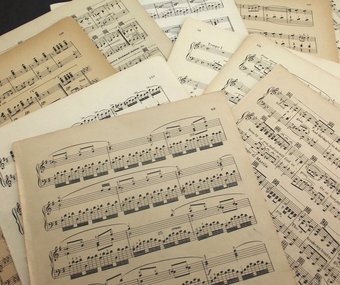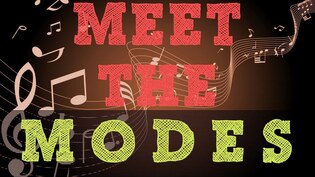- Music services
- Audio services
- Forensic Musicology
- CV & Credits
- Contact
- Lessons
- Music Copyright Checker - Compare Melodies, Rhythms, & More
- The FAV Corpus
- Music Theory For Producers
- Music Theory Placement Exams
- Copyright Cheat Sheet: Finding Substantially Similar Songs
- All I Want For Christmas Is (Sue) You: A Forensic Musicologist On The Mariah Carey Case
- Mexico City WhatsApp Groups
- Music Retreat
|
Maybe you want to write better songs. Understand how to use chords and scales. Make beats faster. Expand your creativity. Whatever your goals are, learning basic music theory gives you the tools to structure your musical ideas and make songs better, faster, and stronger. Music theory is the secret weapon behind every great song. No matter who you are. An electronic music producer who makes Future Bass. An acoustic guitarist who writes Folk music. A hip-hop artist who creates Trap beats. For many people, music theory is a mysterious, dark art. They don’t know where to begin. But learning music theory doesn’t have to be a struggle. This article will debunk four myths that are holding you back from mastering music theory. Myth #1: You need to read sheet music to learn music theory What is music theory? My definition of music theory is: a set of tools, concepts, and skills for HEARING and THINKING about sound. As a PhD in music theory, trust me when I say...you can master ALL of the following music theory concepts and more, without ANY music notation:
You only need sheet music skills if you want to be a:
Otherwise, you don’t need to read or write ANY sheet music to be a great musician. Many of my students can’t read sheet music at all, but that doesn’t stop us from covering some VERY advanced concepts. If you think today’s super-talented hit songwriters, rappers, and EDM producers are worrying about sheet music—think again. Stevie Wonder is blind, but he had no trouble composing some of the most innovative records in history—what does that tell you? (Beethoven was deaf but, well, that’s a different story!) Myth #2: You need piano lessons to learn music theory Do you need to play piano to learn music theory? Absolutely not. You don’t need piano lessons to make great songs or to understand music theory. Sure, it’s true that the piano is the best instrument to understand music theory and composition. This is because the piano gives you a clear, left-to-right layout of the notes (C, C#, D, D#, etc.) repeating every octave. But you don’t need to play the piano, or any other instrument for that matter, to make great music. Your EARS and your MIND are the best tools for learning music theory. For most of my producer students, I recommend skipping the piano lessons. Instead of years of piano practice, finger technique, and sheet music, add a small, affordable MIDI keyboard controller (25 keys is fine) to your workflow. Myth #3: To learn music theory, you need a music degree This is one of the biggest myths out there. Don’t get me wrong, university music degrees are great for:
Otherwise, a university music degree can be the most expensive and time-consuming mistake you ever make. In my experience, finding the right music theory tutor for private lessons is the best way (and the cheapest option) to learn music theory. You can do this 100% online and remote, at your own pace and level. (Click here to read about my music theory lessons) With a music theory tutor, you’ll get one-on-one, customized instruction. And it’s wayyy cheaper than a college education. For producers or songwriters, the problem is that most college music degrees are focused on reading music notation and analyzing Classical music scores. This is usually a waste of your time (see Myth #1). We all know that most schools teach to the test. You don’t learn skills. You memorize stuff. In most music theory courses, students are graded by their ability to label and name things on a score. Instead of using their EARS and SKILLS. Pick up any music theory textbook and you’ll see a long glossary of terms. While some vocabulary can be useful, it’s gotten out of hand. In my opinion, it distracts people from what’s important. Instead of an expensive college course, music theory lessons with a private tutor are THE best way to learn how to make music. Myth #4: YouTube is all you need to learn music theory I see a lot of music theory explanation videos on YouTube. There’s some great stuff out there. But there’s a lot of trash too. A lot of the information on YouTube is just straight up wrong. I see mistakes all the time, even on top-rated videos. One thing I’ve never understood is this obsession with modes. Like Phrygian, Lydian, Aeolian, etc. Literally guys, unless you are a jazz player, or in a progressive metal band, you don’t need modes. Trust me. Very few pop, hip-hop, or EDM songs use modes. Don’t get me wrong. Modes are great. I love jazz. I love metal. But for most genres, chances are you really don’t need modes at all. Like many things on YouTube, modes are a distraction. Videos with cool graphics and exciting diagrams make you temporarily feel smart. But once the video is over, can you really sit down and make a great song? The point is, while YouTube can be a good resource, you’re far better off seeking an experienced tutor who can give you training customized to your goals. Conclusion Deep study of music theory, ear training, and aural skills will give you Jedi powers.
Thanks to years of intensive training, when I hear music, I literally see a string of numbers in front of my eyes. It’s like Neo when he finally sees The Matrix in its true form. Imagine how powerful that is. To be at your guitar and instantly know what harmonies to play, or what melody to sing. You will learn to hear the notes before they happen. You’ll find song ideas coming a lot faster. Instead of making 1 beat a day, you’ll make 10. When you see someone on the subway programming a beat in their laptop—on mute--that’s music theory. When you can go for a walk and write a song in your head, and then get home and play it on the guitar perfectly the first time, that’s music theory. The good news is, with the proper training, anyone can learn music theory without being Albert Einstein. What are your questions about music theory? What types of skills do you want to build? What are your goals as a musician? Feel free to leave your comments or questions below. I’ll personally answer every single one. Happy learning! (Click here to read about my music theory lessons)
7 Comments
Mike
3/18/2021 06:32:19 am
Killer article! Will defs be using this
Reply
3/18/2021 11:11:58 am
I'm sorry but the claim "anyone can learn music theory without being Albert Einstein" is extremely disrespectful.
Reply
It's interesting to know that a producer doesn't have to actually know how to play the piano or any other instruments, because your mind and ears would be the best tools to create one. I guess this means that one should not expect that music production services would have owners who are actual guitarists, because they can own the business by just having the imagination. In my opinion, they would probably hire musicians instead to create the pieces they have in mind as long as they can explain how it goes once they start the production process.
Reply
Leave a Reply. |









